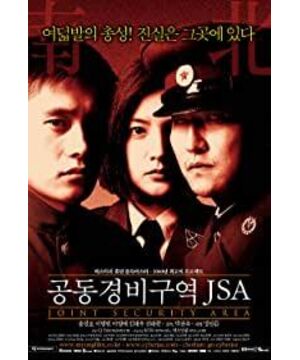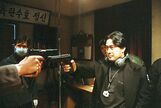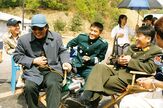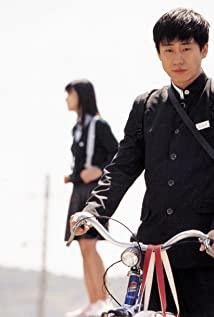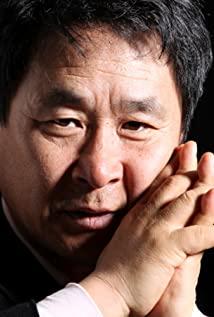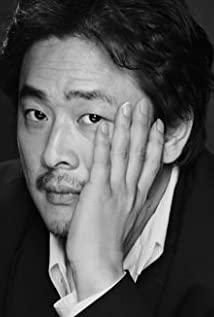I revisited an old movie today and found that a good movie does not look outdated and old-fashioned just because it is old. This movie is both intimate and distant in terms of emotional distance, and short-lived happiness in terms of plot development. A tragic ending followed.
It is said that the two protagonists of the story come from two countries in Northeast Asia, one is South Korea and the other is North Korea. We all know that North Korea and South Korea were originally a country called Goryeo. North Korea and South Korea became independent after World War II in 1945.
So what are the differences between the two countries that are so "close"? Language differences: There is almost no difference in grammar, but there are big differences in word usage and pronunciation. The biggest difference is in foreign words. Korean basically has no loanwords, while Korean loanwords have a very large vocabulary, and loanwords are mainly Chinese, Japanese and English.
The political system is different: South Korea's political system is a presidential republic system, and North Korea's political system is a Soviet system.
The legal system is different: South Korea's legal system is civil law system and common law system, North Korea's legal system is continental law system, socialist law system.
The social systems are different: South Korea is a capitalist society, while North Korea is a socialist system.
But in general: Although the two countries have evolved and developed different cultures and political systems after the war, the traditional cultures of the two sides have almost no differences.
In a harmonious but different context, this film made me feel the love-hate entanglement between the two sides: "Common Security Area"
One day, North Korean soldiers at the post were killed by unidentified bullets, triggering a gun battle between the two sides. The most suspected murderer was a South Korean soldier who was also on the border, but the South Korean side accused the North Korean side of mobilizing the incident first, and both sides believed that the opponent should be responsible for it. To resolve the headless case, the North and South agreed to a coordinated investigation by neutral nations.
In the process of rational investigation, Sophie did not know that the soldiers who were supposed to be enemies, but in the long-term contact, forged an underground friendship that was both an enemy and a friend.
At the border separated by a line, Li Xiuhe, who was on a mission, accidentally encountered the mine line placed by the North Korean side. Under the circumstances that Tiantian should not be called and the ground not working, he met the North Korean soldier Wu Jingbi. Wu Jingbi did not walk away just because Li Xiuhe was a Korean soldier, but instead, he acted righteously and saved Li Xiuhe's life.
In the long and tedious guarding career that followed, Lee Soo-hyuk plucked up the courage to cross the border between North Korea and South Korea, walked into the other party's post, gag with North Korean soldiers, listened to songs and chatted, smoked and drank together, Birthday gifts are given to each other to comfort the monotonous life day after day.
In this short period of time, they put aside their respective identities and let go of the barriers between them. The four people who are immersed in laughter are simple and innocent brothers.
But the good times didn't last long. Suddenly one day, a senior North Korean officer came to inspect the post and saw that they were having a happy gathering. In an instant, the atmosphere changed from a relaxed and happy to a sword drawn. The former brothers became the enemies who were ready to pull the trigger at any time. After the sound, they personally killed their close friends and shattered the accumulated trust.
Sophie, who appeared as a staff member of the Swiss Neutral Nations Supervisory Committee, made the whole incident clearer and clearer, but also pushed several soldiers to a desperate situation. In the face of a rigorous investigation, they would rather not say a word. They would rather be convicted and die than betray each other and admit that the four of them once had friendship.
As the case digs deeper and deeper, their fates are also destined to go in different directions. One of the former four friends was forced to commit suicide by jumping off the building. When Li Xiuhe and Wu Jingbi confronted each other, in order to protect Li Shouhe, Wu Jingbi scolded him. Diverting his attention to stop Li Xiuhe, who was on the verge of collapse, from telling the truth. He thought he would save himself from danger, but at the end, Li Xiuhe, who was in remorse and inner suffering, chose to commit suicide by drinking bullets.
The film takes the establishment of a warm brotherly friendship as a process, and then ends the friendship between the four with a cruel tragedy. The expression behind it is really thought-provoking.
As for the two compatriots who have been in a state of hostility all the year round, this film uses the theme of transcending taboos to show the cruelty intertwined between the human individual and the system and various historical obstacles that cannot be overcome.
The whole film creates a suspenseful plot by interlacing time and space in back and forth, which makes people watch it. Using a mild black style to expose the huge impact of political positions under ideology on human nature, and human nature is trying to get rid of those damn political systems under the huge and heavy historical burden, and ultimately the ego and personality still appear abnormally small.
Human nature itself is simple and simple. In the play, the four people who had gotten rid of the original ideology and became friends, were finally influenced by the long-term instilled hostility and doubt in their hearts and drew their guns. The two camps fought for the crisis that did not exist. It is heartbreaking to shoot each other, and it is chilling because of the mutual avoidance of compatriots.
The more I get to the end, the more I think of the relationship between the two sides of the Taiwan Strait, because we also have the same historical problems, so this film brings me deeper thinking and experience. Are they really guilty? For life, from the perspective of life, isn't it the biggest absurdity in reality to have compatriots who are originally from the same blood and hate each other?
Let them bury all their mental journeys and emotional changes in this photo.
In 2000, when the film was released, the relationship between the two parties made a historic breakthrough. In the middle of the year, the DPRK and the ROK signed a "Common Declaration", stating that the North and the South had reached an agreement on five items including independent national reunification, gatherings of separated families, and expanding economic exchanges and cooperation. Finally, I hope that facing the same problem, we can put aside our prejudice, put aside our positions, put aside each other's grievances and defensiveness, sit down and talk, and bring the distance closer on the difficult road to reunification.
View more about Joint Security Area reviews


